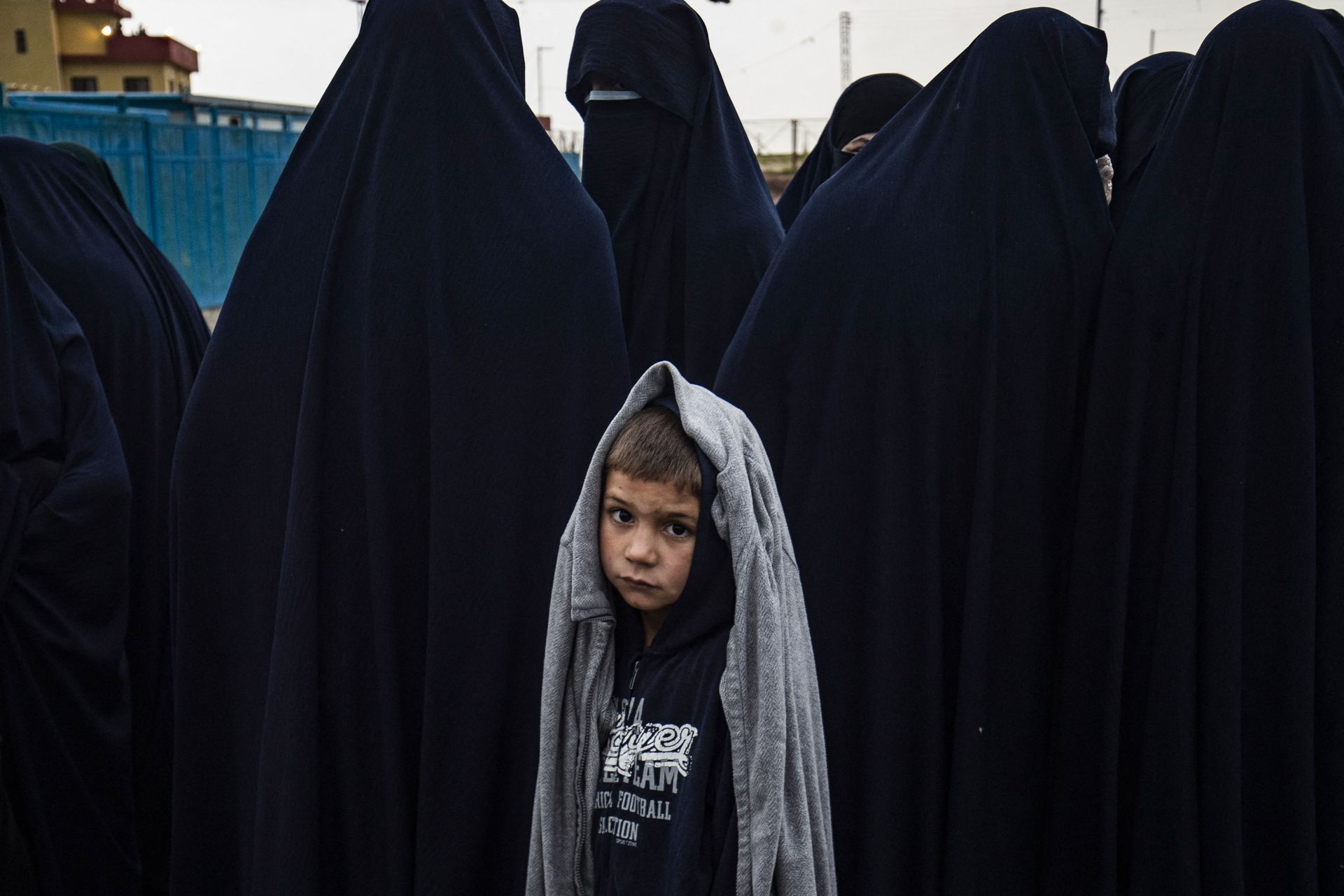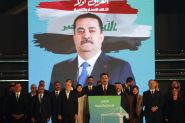- Home
- Middle East
- Iraq Seeks to Repatriate “Hundreds” of Foreign Female Prisoners and their Children

Women and children queue during a joint security operation by Syria's Kurdish Internal Security Police Force, also known as Asayesh, and the Kurdish-led Syrian Democratic Forces (SDF) at Camp Roj where foreign relatives of people suspected of belonging to the Islamic State (IS) group are held, in the countryside near al-Malikiyah (Derik) in the northeastern Syrian Hasakah province on April 5, 2025. ©Delil Souleiman / AFP
Iraq has announced plans to send back to their home countries “hundreds” of foreign women prisoners and their children, but two foreign diplomats told AFP on Monday that such procedures are expected to take a long time.
The initiative excludes women sentenced to death but covers detainees affiliated with the Islamic State (IS) group as well as common-law prisoners, an Iraqi security official told AFP.
The largest number of inmates come from Turkey, Azerbaijan, and Russia, he added.
France is also concerned, with two women sentenced in Iraq, including Djamila Boutoutaou, who was handed a 20-year prison term in 2018 for IS-related charges.
Iraqi authorities have created a committee “tasked with drafting a plan to repatriate foreign and Arab female prisoners along with their children,” Justice Ministry spokesman Ahmed Laibi said Saturday, as quoted by the state news agency INA.
“We have hundreds of women and children in our penitentiary facilities,” he added, noting that the committee is chaired by the justice minister.
He stressed the importance of a measure “that would help reduce prison overcrowding.”
According to a judicial source, around 625 foreign women and their 60 children are imprisoned in Iraq, mostly for IS affiliation.
The country, struggling with crumbling infrastructure, aims to ease prison overcrowding, which dropped from 300% to 150%, the Justice Ministry said in late July.
Among detainees are thousands of Iraqis and foreigners convicted of IS membership, often after speedy trials, according to NGOs.
The jihadists, defeated in Iraq in 2017, had committed widespread atrocities after a lightning offensive three years earlier.
To discuss the repatriations, the Justice Ministry met with foreign diplomats in Baghdad on August 21, stressing “the humanitarian aspect” of the issue, particularly concerning children.
“I’m not sure this can happen very quickly,” a European diplomat told AFP on condition of anonymity due to the sensitivity of the matter.
Repatriations “will only be possible through bilateral agreements between two countries,” he said.
An Arab diplomat agreed, noting that “such procedures cannot be completed quickly” as they require “a legal framework.”
“To speed up the process with countries lacking bilateral agreements, Iraqi authorities have proposed using memorandums of understanding, which would allow the executive to act without waiting for parliamentary ratification,” he added.
AFP
Read more



Comments